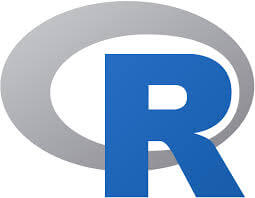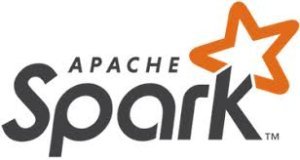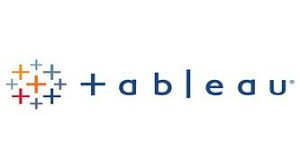In today’s technology-driven world, businesses have access to a huge amount of data that can be leveraged to an enormous extent. With the emergence of data, there comes a dire need of professionals who’re able to mine that data and draw valuable insights from it. In every aspect of data, there’s a growing demand for those who truly understand what can actually be done with a huge amount of data. Yes, we’re talking about data scientists here – the buzzword in today’s technology-driven landscape.
If you want to become a data scientist, it’s important to understand that no one can become that overnight. Becoming a data scientist is a journey and may seem to be a challenging one if you don’t know what the criteria are to become one. Data scientists are expected to (and they do indeed) know a lot. From computer science, machine learning, data visualization to mathematics, statistics and communication – you’d need to master a lot of things.
In this post, we’ve categorized all the skills that are required to become a data scientist into three major categories to help you get a solid understanding of them and proceed with your career. Let’s have a look at them.
1- General skills
1.1- Curiosity

Curiosity is an extremely crucial skill that will encourage you to continue putting your effort throughout the journey of becoming a data scientist. It’ll also help you understand what questions need to be asked when you’re diving into a new dataset.
Your first attempt will rarely succeed, but if you keep mining deeper, surprising things may come up. There isn’t any single way to increase curiosity. Ideally, you should give yourself space and time to learn or do projects outside of your regular work to keep yourself inspired and curious.
1.2- Problem-solving instinct

To become a good data scientist, you should have a good problem-solving intuition. When you’ll be working as a data scientist, knowing how to solve a problem which is defined for you won’t be enough. Instead, you’ll need to find and define the problems first.
Similar to curiosity, there isn’t a single way to develop this skill. Some aspiring data scientists nurture this skill by learning how to code, for example.
1.3- Statistical and mathematical knowledge

You need to have a robust understanding of both statistics and mathematics to become a data scientist. The better you understand them, the better you’ll be in using them at work.
Remember that it’s not all about being a statistician or mathematician. Instead, it’s about using the basics of them as a foundation for business analytics.
2- Technical skills

Usually, data scientists hold a Master’s degree or a Ph.D. in computer science, statistics etc that offer them a good foundation to connect with the relevant technical points that encompass the requirements of becoming a data scientist. Here’re the most important and common technical skills that you should focus upon.
2.1- Python

Python is one of the most in-demand languages for data scientists. Because of its versatility, Python can be used for almost every step involved in the work of data scientists. This popular open source language is beginner-friendly and comes equipped with a lot of support resources.
2.2- R

Similar to Python, R is almost a must for any data scientist position. This programming language is particularly designed for data science. Though there’re lots of great resources available for getting started with R, it comes with a steep learning curve.
2.3- SQL

Even though Hadoop has become quite popular in the field of data science, it’s still expected that an aspiring data scientist will be able to make use of SQL quite efficiently.
SQL or Structured Query Language can help you to perform different tasks in a database, apart from letting you transform database structures and carry out analytical functions.
2.4- Hadoop

Knowledge of Hadoop platform is preferred to become an adept data scientist. Having experience with Pig or Hive is also a good selling point when it comes to job opportunities.
As a data scientist, you may encounter situations where the volume of data you hold exceeds your system’s memory or you need to transfer the data to other servers. With the help of Hadoop, data can be conveyed quickly to different points. You can also use Hadoop for data filtration, data exploration etc.
2.5- Apache Spark

Today, big data is everywhere and there’s a dire need to capture and preserve whatever data is being produced. That’s why big data analytics has come to the frontline of today’s technological domain.
As a data scientist, it’s crucial that you’ve adequate knowledge about frameworks to process big data. Apache Spark is steadily becoming the most widely used big data technology across the globe. The data processing engine is similar to Hadoop with the main difference being that it’s faster.
Apache Spark is particularly designed for data science to help the data workers run complicated algorithms faster. It also helps data scientists to handle complex, unstructured datasets.
2.6- Tableau

The business world generates a huge amount of data frequently. This data has to be translated into a format which will be easy to understand. Pictures in the forms of graphs and charts are easily understood by people compared to raw data.
As a data scientist, you’ve to be able to visualize data by using data visualization tools like Tableau. Tableau is also an analytics platform that is powerful and easy to use. If you’ve not heard of it, you can enroll in a course run by an online university or institution to learn the basics.
2.7- Unstructured data

It’s crucial for a data scientist to be proficient in working with unstructured data. Unstructured data refer to the undefined content, which doesn’t fit into database tables. Some examples can include blog posts, videos, video feeds, and social media posts, among others. These are heavy texts that are lumped together and the process of sorting them is complex because they aren’t streamlined. Ability to work with unstructured data would help a data scientist untangle insights which can be valuable for decision-making processes.
2.8- Machine learning and deep learning

A significant number of data scientists aren’t proficient in machine learning techniques and its different areas like reinforcement learning, neural networks, adversarial learning etc. To strengthen your position as a data scientist, you should focus on learning techniques like decision trees, supervised machine learning, logistic regression etc.
Deep learning has become a heavily talked about subject these days as it solves lots of limitations of traditional machine learning approaches.
3- Non-technical skills

These non-technical skills can also be referred to as personal skills and are critical for becoming a data scientist. Let’s have a look at them.
3.1- Robust business acumen

To become a good data scientist, you should have a solid understanding of the industry you’re putting your effort into. You’ll also need to know about the fundamental elements that form a successful business model. Or else, you won’t be able to channel your technical expertise productively.
You won’t be able to perceive the business problems and potential challenges, which need solving in order to help the business sustain and grow. That’s why it’s extremely important to know how businesses operate so that you can channel your efforts in the right direction.
3.2- Strong communication skills

Businesses looking for a good data scientist are actually searching for someone who can fluently and clearly communicate his or her findings to a non-technical team like the sales team or marketing team. As we’ve already discussed, a data scientist has to be able to help the business in decision making by understanding the needs of non-technical teams in order to wrangle the data properly.
Data storytelling is another required communication skill for a data scientist. You should be able to develop a storyline around the data in order to make it easier for everyone to understand. You should also remember that most decision makers don’t want to know what or how you’ve analyzed; rather, what they only want to know is how it can impact the business in a positive manner.
3.3- Good teamwork

It isn’t possible for a data scientist to work alone. You’ll need to work with product designers and managers to develop better products, with company executives to form strategies, with server software developers to improve workflow, and with marketers to create better-converting campaigns, just to name a few.
Put simply, you’ll have to work with almost everyone in the company, including your clients. So, to become a successful data scientist, it’s important to prepare yourself for teamwork.
Final takeaway

Hopefully, the above read will let you understand the key skills that you’d need to become a data scientist. If you’re ready to get completely immersed in learning the above skills and more, consider joining a bootcamp offered by a reputed institution to move a step closer to becoming a data scientist.
Finally, you must remember to always stay updated. Follow the latest updates in the field of data science by reading articles, news, browsing relevant sites and forums, groups etc. Look at the present and upcoming trends in the field and try to identify the place where you want to fit in and then prepare yourself accordingly.
. . .
To learn more about data science, click here and read our another article.


